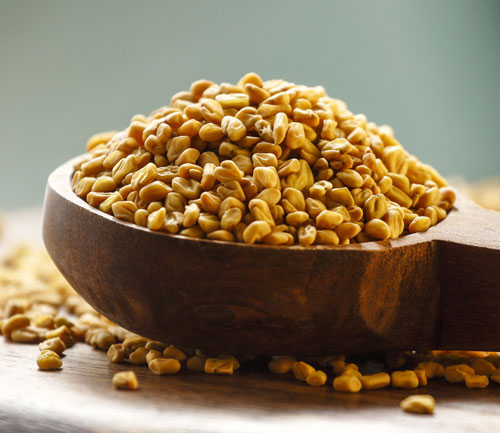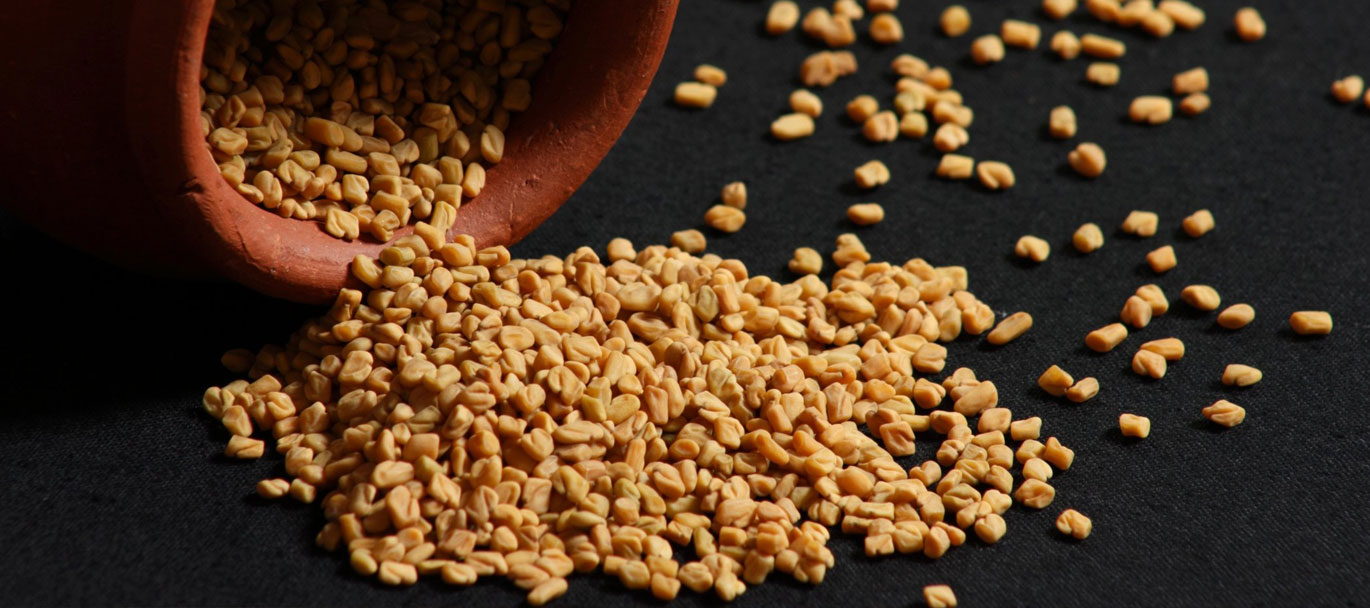Fenugreek is a clove-like plant that grows in the Mediterranean regions, southern Europe and western Asia. Fenugreek seeds are used in cooking and various foods, or medicinal formulations, and are often used to mask the unpalatable taste of various medicines.
The taste of fenugreek can be compared to sugary maple syrup, and the leaves of the fenugreek plant are consumed as food in some countries such as India.
The use of the fenugreek plant began in the past in alternative folk medicine, and many studies have been conducted recently on the effectiveness of the use of fenugreek in pharmaceutical formulations to reduce the level of sugar and fats in the blood, treat obesity, cancer, infections and various infectious diseases.
The fennel plant is a perennial herbaceous plant that belongs to the family Apiaceae, and is usually cultivated for use as an herb or as a flavoring on some types of food in the kitchen.
Benefits of boiled fenugreek:
The taste of fenugreek can be compared to sugary maple syrup, and the leaves of the fenugreek plant are consumed as food in some countries such as India.
The use of the fenugreek plant began in the past in alternative folk medicine, and many studies have been conducted recently on the effectiveness of the use of fenugreek in pharmaceutical formulations to reduce the level of sugar and fats in the blood, treat obesity, cancer, infections and various infectious diseases.
The fennel plant is a perennial herbaceous plant that belongs to the family Apiaceae, and is usually cultivated for use as an herb or as a flavoring on some types of food in the kitchen.
Benefits of boiled fenugreek:
- Increasing milk secretion in breastfeeding women: Women's milk is the best source of food for the infant, as some studies have shown that drinking fenugreek daily has an effective and direct effect on increasing milk secretion in nursing women.
- Increasing Testosterone Level in Males: One of the most common uses of fenugreek for males is the use of nutritional supplements containing fenugreek. Some studies conducted on males have proven to increase their sexual ability when taking nutritional supplements that contain fenugreek for 8 weeks.
- Regulating the level of sugar in the blood: Some studies conducted on patients with type 1 and type 2 diabetes have proven that eating fenugreek boiled or fenugreek powder helped to secrete the hormone insulin, thus reducing blood sugar.
- The mother of the menstrual cycle in females: Taking boiled fenugreek three times a day at the beginning of the menstrual cycle (that is, in the first three days) helps reduce the pain associated with stomach cramps, and thus reduces the need to take pharmacological painkillers.
- Reduce appetite: Some studies have shown that eating fenugreek daily helps to reduce the intake of fatty foods and reduce appetite to some extent.
- Cholesterol level in the blood: Some studies have proven that fenugreek has a significant role in reducing cholesterol and triglycerides in human blood.
- Heartburn: The results of some studies showed that fenugreek has a role in improving the symptoms of heartburn with an effect similar to the well-known anti-acid drugs.
- Infections: Fenugreek has also been shown by some animal studies to treat infections.

Price
$950
During the period from
1/12/2021 to 31/12/2021
1/12/2021 to 31/12/2021


